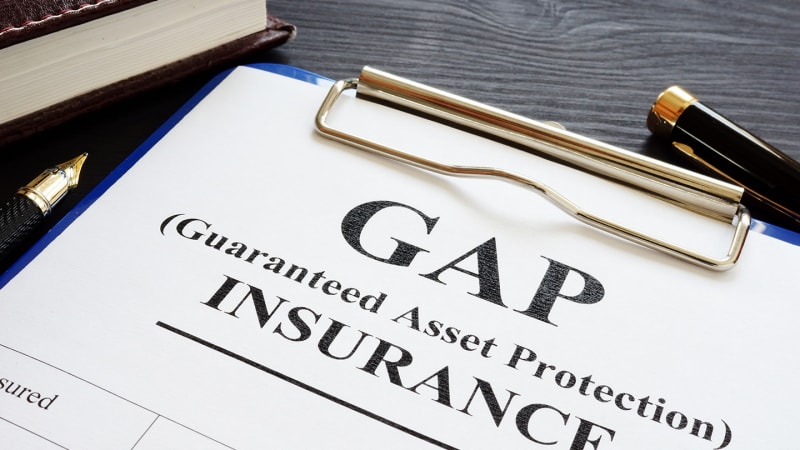What is a private party auto loan and how do you get one?

Quick insights
- A private party auto loan allows someone to finance the purchase of a vehicle from an individual seller through a third-party lender, instead of a dealership.
- The lender provides money to the buyer, and the buyer repays the lender in monthly installments.
- The terms of a private party auto loan usually vary by lender, buyer and the vehicle being bought.
Thinking about buying a used car from a friend, neighbor or someone else? A private party auto loan lets you finance a car purchase. This could be a useful option depending on your situation and goals.
What is a private party auto loan?
A private party auto loan lets you finance the purchase of a vehicle from an individual rather than a dealership. This type of loan is still a financing option, as opposed to a cash payment, and requires repayment over time.
How is it different from a traditional auto loan?
In short, a private party auto loan is for car purchases from individual sellers; a traditional auto loan is for car purchases from car dealerships. The buying process requires the buyer to negotiate price and update vehicle documentation with the seller. This differs from a traditional purchase at a dealership where dealerships manage most of the paperwork for traditional auto loans during a standardized process.
How does a private party auto loan work?
The terms for private party auto loans, such as interest rates and repayment periods can vary. To receive the loan, you’ll need to apply and agree to the loan terms upon approval. The lender will disburse the money for the sale, either directly to the seller or as a check you can endorse to the seller.
Once the seller receives the payment, there are additional steps to take:
- Have the seller sign over the title to you.
- Select your insurance policy.
- Register the vehicle in your name with your state’s DMV.
- Start making monthly payments to the lender according to the terms of your loan agreement.
Where to get a car loan for a private sale
Here's a general overview of where you can find a car loan for a private sale:
- Banks: A local or regional bank may offer auto loans for private sales. Larger national banks have a range of auto loan products, which may include private party purchase loans.*
- Credit unions: Credit unions often focus on serving local communities and may provide private party auto loans.
- Specialized lenders: These companies offer a variety of financial products, which may include auto loans for private party sales. This includes online financial institutions that specialize in auto loans, including those for private party transactions.
- Auto brokers: Auto brokers work to help people buy cars and might match potential buyers with suitable lenders. Depending on the broker, you could get advice and guidance throughout the whole process, including the loan application, making it easier to navigate.
How to apply for a private party auto loan
Here’s how a private party auto loan typically works:
- Find your car: If you haven’t already found a car being sold privately, look for one you want. The internet can broaden or lengthen your search, but this is likely the most fun part next to driving your new car.
- Choose a lender: You can shop around to compare interest rates, loan terms and any associated fees. Try to ensure you can provide the required documents and meet the approval criteria for the loan before taking the next step.
- Prequalify, if possible: The lender will probably check your credit and gather information to estimate how much you can borrow.
- Complete the loan application: You will likely have to provide the lender with details about the vehicle you intend to buy, including the VIN and agreed-upon purchase price. Submit necessary documents and complete the application.
Alternatives to private party auto loans
If a private party auto loan doesn’t seem like it will suit you, here are several alternatives.
Personal loans
Financial institutions and companies that offer private auto loans may offer personal loans, too. Approval criteria and terms can vary greatly, but a personal loan might be useful for buying a car privately. Essentially, the loan would pay for the car, and you’d repay the lender each month for a set term.
Dealership loans
Traditional car loans involve borrowing money from a lender to purchase a vehicle. As the buyer, you apply for and agree to the loan at a dealership. The loan terms, including the interest rate, are influenced by factors like your credit score, income and the down payment. You’re still likely to repay the loan in fixed monthly installments over a set period.
Buy in cash
Private car sales can be paid for if you have the money on hand, and it might be preferrable. If both parties agree to the price and payment method, a cash transaction can be the fastest way to buy a car privately, and you won’t pay interest on a loan.
In summary
Private party auto loans allow you to finance a car you buy from an individual. You'd pay the seller directly and repay the lender over time for providing the financing. There are additional options for private car sales, including personal loans and cash payments. Meanwhile, traditional auto loans suit those who want to buy a new or used car through a car dealership and financial institution.
*Chase does not offer financing for private sales at the time of writing.



